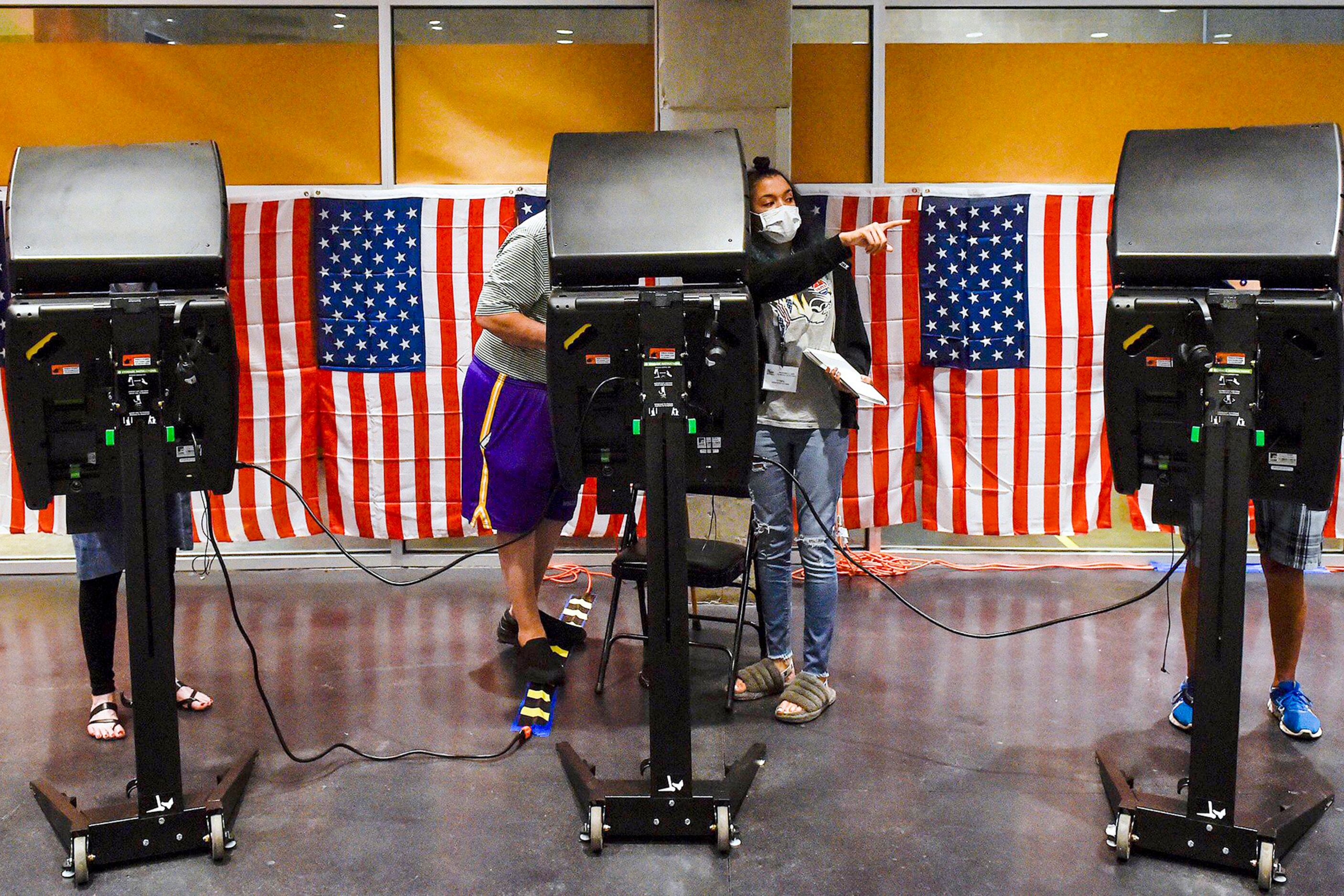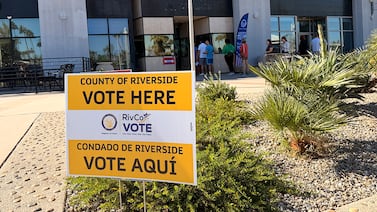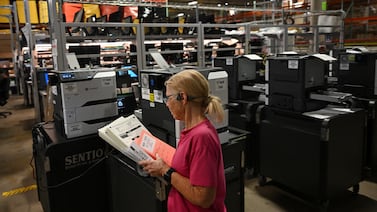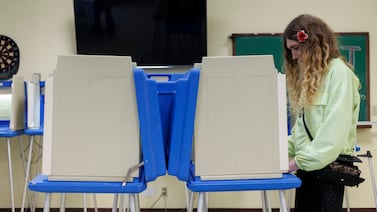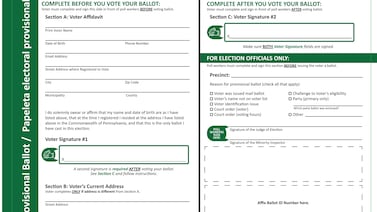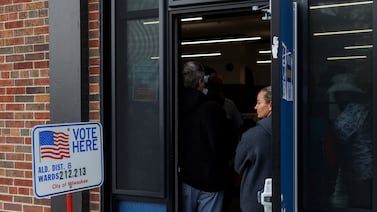Votebeat is a nonprofit news organization reporting on voting access and election administration across the U.S. Sign up for Votebeat Wisconsin’s free newsletter here.
The U.S. Department of Justice threatened legal action in July against two northern Wisconsin towns that allegedly didn’t have accessible voting equipment in the April election.
At least one of the towns, which is represented by some officials who have voiced distrust of electronic voting equipment, appears to be on a collision course with the agency after a local voter said it didn’t use the federally required voting equipment in the Aug. 13 election, either.
A U.S. assistant attorney general authorized the filing of lawsuits against Thornapple and Lawrence, two towns in Rusk County, along with their clerks and board supervisors for allegedly violating a section of federal law requiring them to have voting systems equipped for people with disabilities in each polling place, according to a letter obtained by Votebeat.
Kristen Clarke, the assistant attorney general in the Justice Department’s Civil Rights Division who wrote the letter, offered both towns the option to settle the matter through a consent decree. It’s unclear whether that happened.
“We hope to resolve this matter amicably and to avoid protracted litigation,” Clarke said.
Suzanne Pinnow, the top election official in Thornapple, declined to answer multiple questions but questioned whether the Justice Department would go after the town.
“Do you think perhaps they’re going to use Thornapple, because we are a tiny little place, as precedent to reflect back on and say, ‘Look, we forced them’?” she asked.
Thornapple, a town of over 700 people in rural northern Wisconsin, is one of the municipalities that election conspiracy theorists ahead of the November election have been trying to persuade not to use voting machines. It’s a push that has gained little traction in Wisconsin but has quickly fallen under legal scrutiny.
Wisconsin municipalities with a population of under 7,500 people don’t have to follow the state law requiring use of electronic voting equipment. But federal law requires them to have “at least one direct recording electronic voting system or other voting system equipped for individuals with disabilities at each polling place.”
Direct-recording electronic voting systems are voting machines with touchscreens, buttons, or dials allowing voters to select candidates directly on the machine. They have headphones that allow voters to hear as well as see the ballot options.
Pinnow said Thornapple decided in the middle of 2023 not to use voting machines and opted out of using them in the Aug. 13 election for the “same reasons we did before.” She didn’t elaborate.
In April, Pinnow told Votebeat that nobody in the town had been unable to vote because of the decision not to have accessible voting machines.
“I wish I could talk. I wish I could,” Pinnow said on Thursday. “I wish I could because I think more people need to hear and understand and know why. But at this time, I can’t … because if it for some reason would go to litigation, I don’t want anything out there that I’m spewing this or that or saying something that I didn’t say.”
Erin Webster, a Thornapple voter who’s chair of the Rusk County Democratic Party, said the town polling place didn’t have a voting machine for the April 2 or Aug. 13 elections. Webster said she heard the town picked up a voting machine from the county in the most recent election, but she didn’t see it in use when she voted.
Rusk County Clerk Connie Meyer, a Republican, declined to answer questions in a brief call.
Town residents raised the Justice Department letter to Thornapple in an August meeting, about a month after town officials received it, Webster said. But at that time, Webster said, town officials claimed they still had not met to discuss the letter.
Thornapple Supervisor Jack Zupan didn’t respond to a request for comment, while Supervisor Tom Zelm declined to comment. Thornapple Town Chair Ralph Kenyon couldn’t be reached.
Lawrence Town Chair Bob Nawrocki declined to comment, and town supervisors Stacy Zimmer and Duane Biller didn’t respond to a request for comment.
Spokespeople for the Wisconsin Elections Commission, which the Justice Department also authorized the lawsuit against, didn’t provide answers to written questions.
In a call with Webster in April, Zupan said he believed there was a stolen election and that “computers have to go because they’re full of error.”
He said hand-counted ballots are more accurate than using voting machines because, he claimed baselessly that a communist could stick a pen into a machine to manipulate the results.
Alexander Shur is a reporter for Votebeat based in Wisconsin. Contact Alexander at ashur@votebeat.org.

